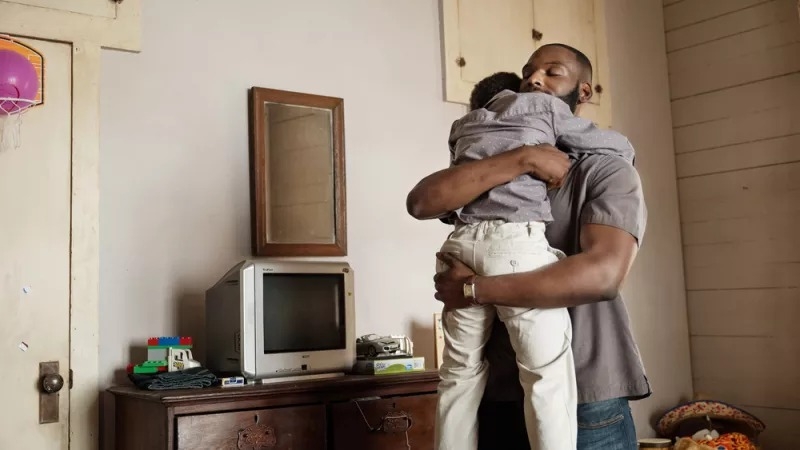n the canon of Black American television, Black fathers have been a staple – particularly on some of our most beloved sitcoms. From James Evans on Good Times to Phillip Banks on The Fresh Prince of Bel-Air, these men have been the ultimate father figures for those of us who are deeply connected to our own fathers and for others who felt a paternal void. Despite varying economic statuses and levels of education, these men were pillars when it came to representing idyllic versions of Black nuclear families. They were was respectable, whole, and constant. After all, according to the CDC, Black dads who live with their children are actually the most involved fathers of any race. And yet, as much as we admire these characters, reciting classic lines, words of wisdom and reminiscing on our favorite scenes, these TV dads don’t look like the young Black fathers that we see on a daily basis. These are the young men pushing strollers down 116th street in Harlem or even styling their daughter’s hair on Instagram. Since networks and creators were so concerned about putting out a specific kind of Black image, they failed to pave the way for certain types of Black fathers to be seen on screen. These men look like our brothers, friends, or even the towering figures that have raised us. Though we’ve observed single Black fathers on TV before like Flex Washington on One on One, and even very involved fathers like on Kenny Chadway on Showtime’s Soul Food, Ava DuVernay’s Queen Sugar is the first time we've seen a single millennial Black father in a TV drama. Kofi Siriboe’s Ralph Angel is an anomaly on television. Stoic but loving, Ralph Angel is struggling to parent while trying to unravel his own identity as a Black man, father, ex-con, and landowner. His presence is very refreshing.
Continue reading at Shadow and Act.

